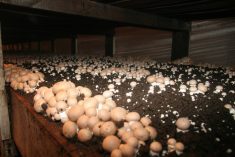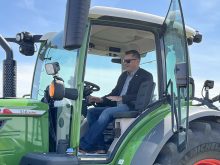NEW YORK (Reuters) — U.S. farmers see the flow of new technologies coming to farms boosting production in coming years but worry about labour availability.
Farmers attending a recent soybean conference said technological developments, including new soy and corn seeds and equipment to sample soil, will drive higher agricultural yields in coming seasons as they allow for a better understanding of what is needed to boost output.
“We have the coolest toys these days,” said Kansas producer Lance Rezac.
He said extensive field sampling provides farmers with a lot of data to be analyzed, giving more precise indications of how much fertilizer and other inputs each plot needs.
Read Also

Crop quality looks good this year across Prairies
Crop quality looks real good this year, with the exception of durum.
Improvements to the machines are also increasing efficiency, farmers said.
Rezac said he avoided seed losses by as much as 10 percent with new precision planting equipment.
“With some of the improvements in the genetics side that we’ve seen, there is no doubt yields are going up,” said Jeff Jorgenson, a farmer from Iowa.
Seed producers have been developing new hybrids in an effort to address a changing climate, generally warmer and drier.
Farmers were mostly upbeat on market prospects despite difficulties with the weather this year.
A growing global demand for protein and increasing use of biofuel will keep prices at good levels, they said.
“It is a fun time to be involved with soybeans,” said farmer Janna Fritz from Michigan.
She cautioned that more people will be needed as farmers retire, and the transition among generations has not been enough to fill the labour void.
Reggie Strickland, who in addition to corn and soybeans also grows vegetables in North Carolina, said the labour shortage for that kind of production, which requires hand harvesting, is even worse.















